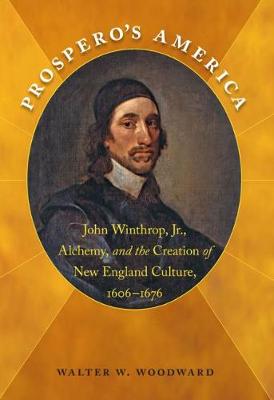This book looks at how early New England was shaped by European science and philosophy. ""Prospero's America"" examines the transfer of alchemical culture to America by one of English colonization's early giants, John Winthrop, Jr. Winthrop participated in a pan-European network of natural philosophers who believed alchemy could improve the human condition and hasten Christ's Second Coming. Walter Woodward demonstrates how Winthrop and his philosophy influenced New England's cultural formation: its settlement, economy, religious toleration, Indian relations, medical practice, witchcraft prosecution, and imperial diplomacy. Winthrop's commitment to pansophic reform led him to found a 'new' London in 1645 as an alchemical research center. That commitment underpinned both his broad religious tolerance and his steadfast advocacy for the Pequot Indians; he overcame harsh censure largely through his expansive administration of alchemical medicine. Winthrop's occult knowledge provided him great authority in witchcraft cases, which as governor he used to permanently put an end to Connecticut witchcraft executions. In England, alchemical networks linked Winthrop to court patronage, which helped him obtain - and later defend - Connecticut's remarkable royal charter. ""Prospero's America"" reconceptualizes the significance of early modern science in shaping New England hand in hand with Puritanism and politics.
- ISBN13 9780807833018
- Publish Date 1 April 2010
- Publish Status Out of Print
- Out of Print 13 June 2014
- Publish Country US
- Imprint The University of North Carolina Press
- Edition New edition
- Format Hardcover
- Pages 336
- Language English
